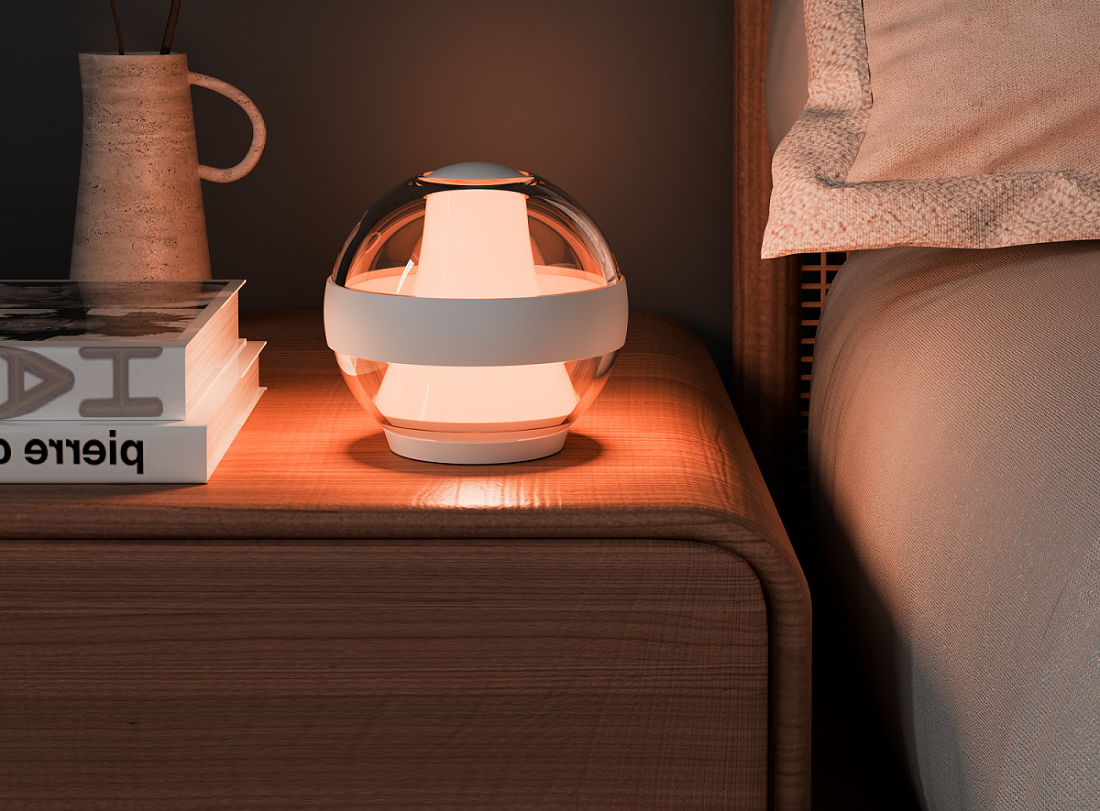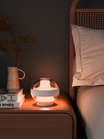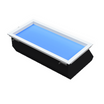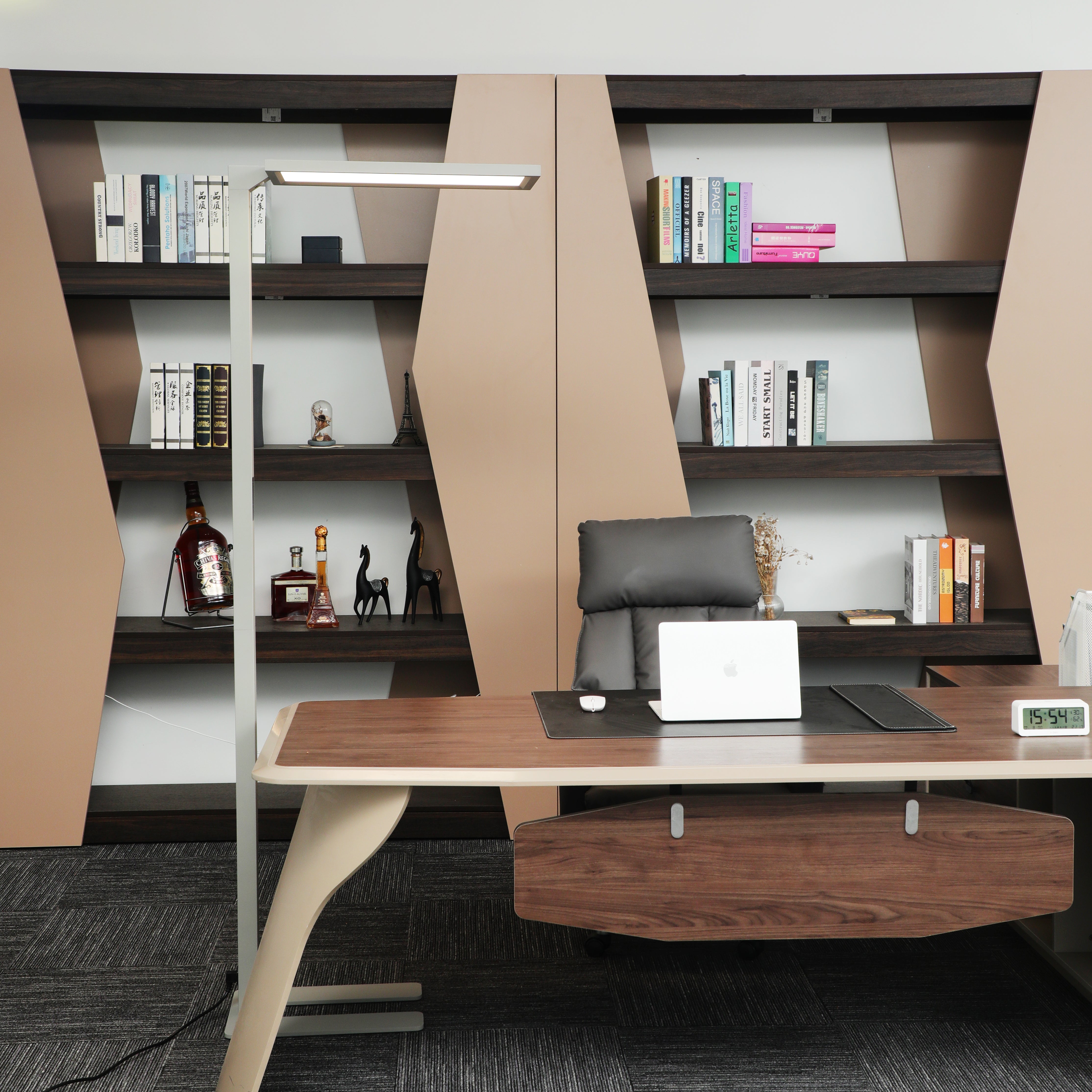Natural Daylight = Life
It's vital to understand that natural daylight is significantly more than a mere source of illumination. This natural phenomenon plays an integral role in our psychological and physiological well-being. The exposure to daylight, especially during the morning and afternoon hours, offers numerous benefits, including mood enhancement, Vitamin D synthesis, energy conservation, and smarter space utilization.
A unique attribute of natural daylight is its spectral composition. It varies across the day, with the morning light brimming with a higher concentration of energizing blue wavelengths. As the day progresses towards the evening, the light transforms, filling with warm, red hues that help us unwind and prepare for sleep.

However, in our fast-paced contemporary world, the reality is that we spend close to 90% of our time indoors. This significant indoor lifestyle can limit our exposure to natural daylight, thereby disrupting the synchronization of our internal biological clocks, or circadian rhythms. These disruptions can lead to various physical and psychological health issues, ranging from seasonal affective
disorder (SAD) to a decrease in productivity.
Understanding the importance of natural daylight and mitigating the health disruptions caused by our predominantly indoor lifestyle is, therefore, crucial. By making strategic decisions about lighting and space utilization, we can ensure that we
continue to enjoy the advantages of natural daylight even inside our homes and workspaces.
The benefits of sunlight
Indeed, sunlight is one of nature's most potent tools, carrying with it a multitude of benefits that positively impact our bodies, minds, and even the spaces we occupy.
Sunlight enhances production of vitamin D
One of the most crucial aspects of sunlight is its ability to enhance the body's production of Vitamin D, an essential nutrient for our overall health. Besides boosting our immune system, Vitamin D aids in calcium absorption, contributing to stronger bones and helping combat numerous diseases.
Sunlight regulates our circadian rhythm
Moreover, sunlight plays a crucial role in our sleep patterns. Our bodies rely heavily on natural light to regulate our internal body clocks or circadian rhythm, which ultimately leads to better sleep quality. A healthy dose of sunlight in the morning can reset our internal body clocks and set us up for a restful sleep at the end of the day.
Sunlight improves productivity and cognitive functions
Sunlight is more than just a physiological booster; it's a natural cognitive enhancer too. It significantly contributes to improving productivity, focus, and overall cognitive functioning. Exposure to natural light accelerates our mood, strengthens attention span, and can even spur creative thinking. Studies affirm that access to natural light in workplaces boosts employees' quality of life and overall job performance.
Sunlight reduces stress levels
The benefits of natural light extend to psychological health as well. Regular exposure to sunshine significantly reduces the symptoms of seasonal affective disorder (SAD) and other forms of depression. By implementing more natural light into our living spaces, we can improve our mood, reduce stress levels, and cultivate a more positive and relaxed mindset.
Using architecture and design to control sunlight and improve health
Natural daylight's significance is deeply woven into the realms of architecture and interior design. It is not just beneficial for aesthetic and environmental purposes but serves as a critical element in creating healthy, vibrant indoor environments. The careful integration of daylight in building design can drastically reduce dependency on artificial lighting, leading to significant energy savings and contributing positively to our overall wellbeing.
By controlling and manipulating daylight, architecture and design have the power to reshape our daily experiences and routines. Exposure to the bright, blue-rich light of morning sunlight in interior spaces can stimulate wakefulness, enhance alertness, and boost cognitive performance. On the other hand, as daylight diminishes towards the evening, spaces can be designed to decrease the intensity of blue light, signalling the approach of evening and promoting a state of relaxation and readiness for a restful night's sleep.
It's in this ingenious mix of natural and strategic design choices that the true beauty and functionality of architecture come alive. This approach offers a lively and vibrant ambiance that respects our biological needs while fulfilling aesthetic and practical aspects of architectural design.
As we move into the future, advances in lighting technologies will further enhance the benefits we offer through our spaces. Innovations in lighting technology can provide a powerful complement to the natural light working hand in hand to create spaces that feel natural, comfortable, and conducive for a variety of activities. These technological solutions, expertly blended with natural daylight and thoughtful design, pave the way to future architecture that is not just sustainable, but health-conscious, energy-efficient, and in tune with human wellbeing.
Innovations in lighting technologies are capable of simulating sunlight
In addition to reaping the benefits of natural daylight through strategic architectural and interior design choices, advancements in lighting technologies can further complement our efforts. Some today's innovative lighting solutions have remarkable capabilities to mimic varying spectra of natural sunlight within indoor settings
For instance, innovative solutions such as sunlight spectrum lighting and skylights feature the ability to emulate the sunlight spectrum through the day, offering blue-rich illumination akin to morning sunlight or softer hues resembling evening light. With these technologies at hand, one can create a dynamic lighting environment indoors that keeps our circadian rhythm in tune, regardless of outdoor conditions. This way, even within the confines of interior spaces, we can continue to enjoy the energizing effects of “morning sunlight” for enhanced productivity or the soothing “evening light” for relaxation and improved sleep quality.
For a deeper understanding of these innovations in lighting technologies, [link here].
FAQ
Frequently asked questions about this research
Why is getting enough natural daylight important?
Natural daylight plays an essential role in regulating our biological clock, maintaining our sleep-wake cycle, mood and cognitive performance. It also aids in Vitamin D synthesis, necessary for several bodily functions including bone health and immune function.
How can I increase my natural daylight exposure?
Arrange your indoor spaces to allow maximum daylight entry, take outdoor breaks, make windows dirt and obstacle-free, and consider using daylight simulation lights or devices in dark spaces. To know more about it check our Sunwave™ Technology with Yuji Lighting Sunwave™: All occasion sunlight around you!
















